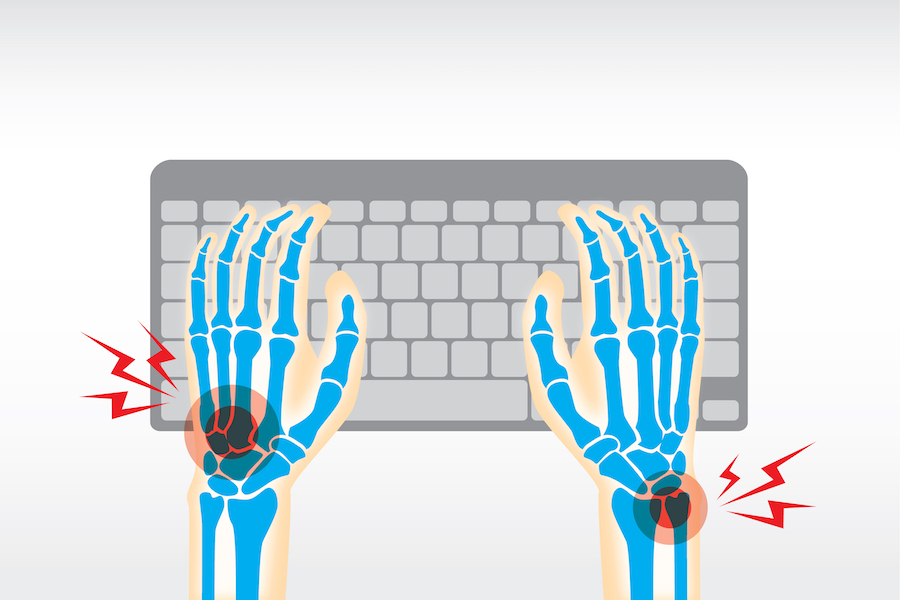Musculoskeletal conditions are an issue businesses can’t afford to ignore. Here’s why

MSK factors
Although MSK health issues can occur at any age, they are more prevalent as people get older. Social perceptions of age have shifted significantly over the past few years – people are staying in the workforce longer and living more active lives as they get older – but many are still in poor health.
Aside from age, there are many factors that can put people at greater risk of developing an MSK condition. Smoking, genetic predisposition, physical inactivity, obesity, injuries, or dietary deficiencies can all make people more susceptible.
Cost of MSK
There is also a proven link between musculoskeletal and mental health, as those who are suffering from MSK problems are at a higher risk of experiencing stress, anxiety and depression2, one of the leading causes of long-term sickness absence in the workplace.
With 30.8m working days lost to MSK problems every year, businesses should be putting the prevention and treatment of MSK at the top of their agenda. Poor MSK health costs businesses billions of pounds each year through absenteeism, lowered productivity and engagement, and sickness absence – and, with seven million in the UK workforce expected to have musculoskeletal conditions by 20302, your business can’t afford to ignore the issue.
Culture of wellbeing
Although not all MSK health conditions are preventable, there are steps that everyone can take to reduce their risk of developing one. By educating your employees and offering preventative services, you are equipping them with the tools they need to keep themselves well. Creating a culture of wellbeing in the workplace, by encouraging transparency about health issues and offering health benefits, will empower employees to make informed choices about their health.
If you have a designated health and safety specialist at work, encourage them to focus on MSK health, and encourage them to offer risk assessments of the workplace to mitigate risk of avoidable injuries. As part of your wellbeing strategy, you could offer a wellbeing survey to immediately identify MSK problems in the workplace. This way, you can use the feedback to start implementing immediate changes.
Benefits to help
Benefits such as discounted gym memberships, money back on medical appointments, paid-for physiotherapy and access to counselling and talking therapies can allow employees to take better care of their health, treating potential problems before they take root and get worse. For example, access to physiotherapy via GP referral can take up to 14 weeks, by which point an MSK condition could become chronic, but by offering on-demand physiotherapy services, your employees can be treated within a matter of days.
If an employee is already suffering from an MSK health condition, there is still support that you can offer. Designing a clear back-to-work process for both managers and employees to follow after a sickness absence can help to establish root causes and can also help you to identify and minimise risk areas for reoccurrence. As an employer, you need to take a proactive approach to supporting employees with MSK problems to enable them to thrive at work.
By putting prevention and early intervention at the core of your wellbeing strategy, you can expect to see a more engaged, loyal workforce who are more productive and motivated, as well as a positive financial impact – with a tailored Health Cash Plan, your business could see a return on investment of £58.383 per employee, per year.
This article is provided by Health Shield.
References
- Musculoskeletal Health: Applying All Our Health, Public Health England (2019)
- Business in the Community, The Prince’s Responsible Business Network (2017)
- This figure is based on the average percentage of employees referred per annum, the average cost per referral and the average ROI = 10:1
Supplied by REBA Associate Member, Health Shield
At Health Shield we're passionate about improving people's everyday health.







